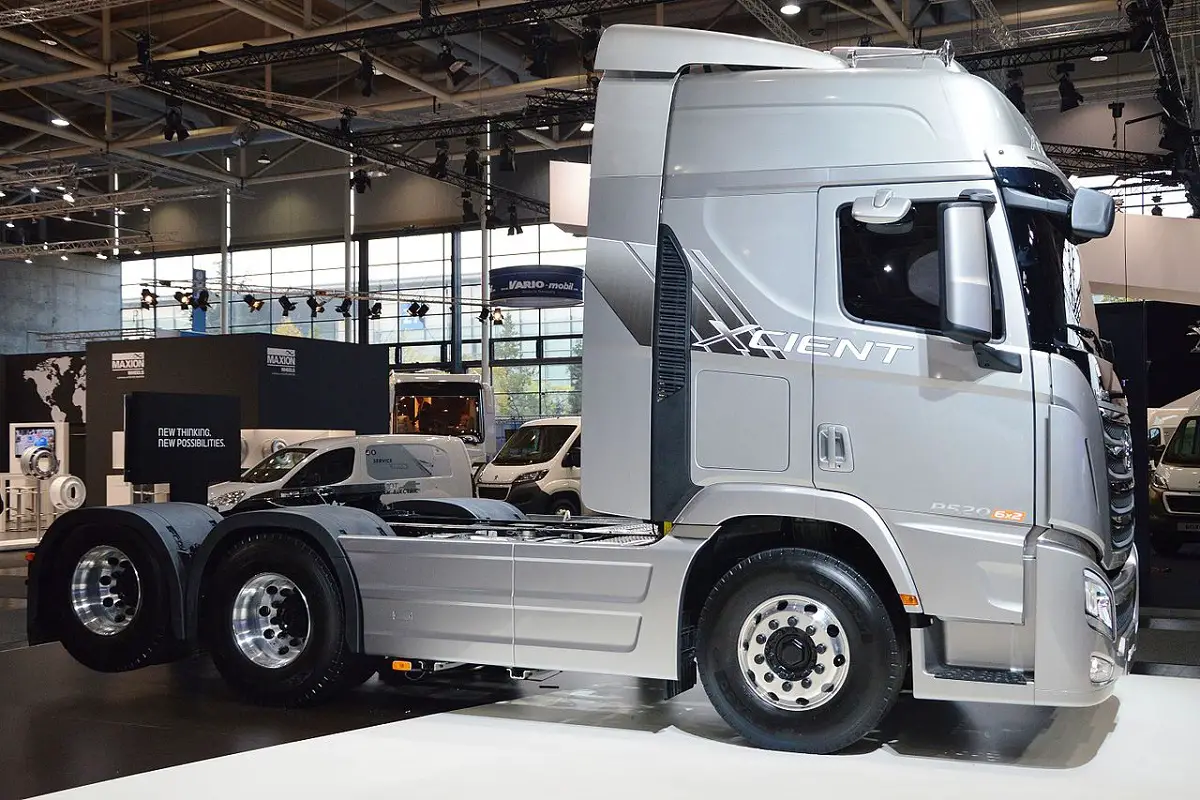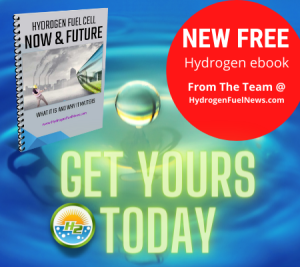
Hyundai Xcient hydrogen fuel cell trucks have driven 3M miles on Swiss roads
November 8, 2022In Switzerland, the 47 heavy-duty vehicles averaged 248 miles per full charge in real world tests.
Hyundai Motor Company’s tests of hydrogen fuel cell trucks in Switzerland has now logged over 3 million miles from use by 23 companies using the vehicles for logistics, fulfillment and distribution purposes.
The test of the Xcient zero-emission vehicles began when they arrived in the country in 2020.
Hyundai’s test of the 47 Xcient hydrogen fuel cell trucks started back in 2020, and the zero-emission vehicles have been used for real world tasks in Switzerland since that time.

“Xcient Fuel Cell is the world’s first heavy-duty fuel cell truck to achieve 5 million km (3.1 million miles) of cumulative driving in real-life customer operations,” said Hyundai senior vice president and head of commercial vehicle business innovation Mark Freymueller. “The experience we’ve gained and the milestone we’ve achieved in Switzerland will provide good insights to many countries that are preparing to transition to a sustainable hydrogen society.”
miles) of cumulative driving in real-life customer operations,” said Hyundai senior vice president and head of commercial vehicle business innovation Mark Freymueller. “The experience we’ve gained and the milestone we’ve achieved in Switzerland will provide good insights to many countries that are preparing to transition to a sustainable hydrogen society.”
Freymueller went on to point out that “Based on this proven track record of successful operation in Switzerland, we’ll expand this business throughout Europe.”
The planning for testing the hydrogen fuel cell trucks started in 2019 with the creation of HHM.
Hyundai Hydrogen Mobility (HHM) was established by Hyundai Motor in 2019 as a component of a partnership with the H2 Energy company from Switzerland. That latter company has a partnership with the H2 Mobility Switzerland Association, which has a focus on building an H2 fueling network, and is also an Xcient customer. The partnership also extends to Hydrospider, a green H2 production company.
The automaker’s role in the development of heavy-duty vehicles that operate carbon emission-free has been critical for organically bringing together vehicle supply, clean H2 production, and refueling.
The Hyundai Xcient hydrogen fuel cell trucks are equipped with a 180-kilowatt system with two 90-kilowatt stacks. The overall fuel efficiency of the vehicles and the durability of the system are designed to alight with the requirements and expectations of commercial fleet customers. Each vehicle is outfitted with seven large H2 tanks for a combined 31-kilogram fuel storage capacity.
Hydrogen Cars Poll – Would you drive one if there were more stations? We want to hear from you – Vote Below⤵️[forminator_poll id=”55717″]



 HFN News is your leading source for fresh hydrogen and renewable energy updates. Amid the fast-paced growth of hydrogen companies, we provide top-notch news and insights about this exciting sector. Our coverage spans from hydrogen cars to global sustainable initiatives, and we highlight the latest in green jobs and developing hydrogen hubs. We invite you to share your local hydrogen news and explore today’s renewable energy job listings on our site. Thanks for choosing HFN News as your trusted guide to the hydrogen and renewable energy world!
HFN News is your leading source for fresh hydrogen and renewable energy updates. Amid the fast-paced growth of hydrogen companies, we provide top-notch news and insights about this exciting sector. Our coverage spans from hydrogen cars to global sustainable initiatives, and we highlight the latest in green jobs and developing hydrogen hubs. We invite you to share your local hydrogen news and explore today’s renewable energy job listings on our site. Thanks for choosing HFN News as your trusted guide to the hydrogen and renewable energy world!

There is a lot of benefits using hydrogen fuel cells versus a pure electric, quicker fuel time and less batteries using hydride tanks or carbon fiber tanks is lighter weight. If we had the political will we could build the infrastructure for thousands of hydrogen fueling stations creating on demand hydrogen, in America we have over 1,500 miles of hydrogen pipelines going to refineries in Texas and Louisiana and the end result spending billions of dollars on drilling and fracking and all the environmental problems associated with it transporting the toxic crude to refineries we get a poisonous gas that comes out of the tailpipe it’s time to make that transition using hydroelectric can provide enough electricity through electrolysis build a network of hydrogen pipelines.
Would like to hear cost effectiveness of initial investment for homeowners and impact on electrical grid which to me is whether I can think about investing in those stocks.
I believe hydrogen should be sold in super-cooled 1 gallon containers from a vending machine as it boils off the gas should be collected as a high pressure gas.
If you have a hybrid plug in battery hydrogen car and it has been sitting for a long time a hydrogen fuel cell charges the battery if you need to go somewhere long distance or you are low on battery you will go to a vending machine and purchase as many one gallon containers as you need for your trip swap them with your empties and go on your way.
I believe that fueling from a station with a hose requires too much maintenance and is dangerous.
Too many chances of frostbite leaks and ignition.
Supercooled hydrogen thermos bottles are more expandable and easier to handle.